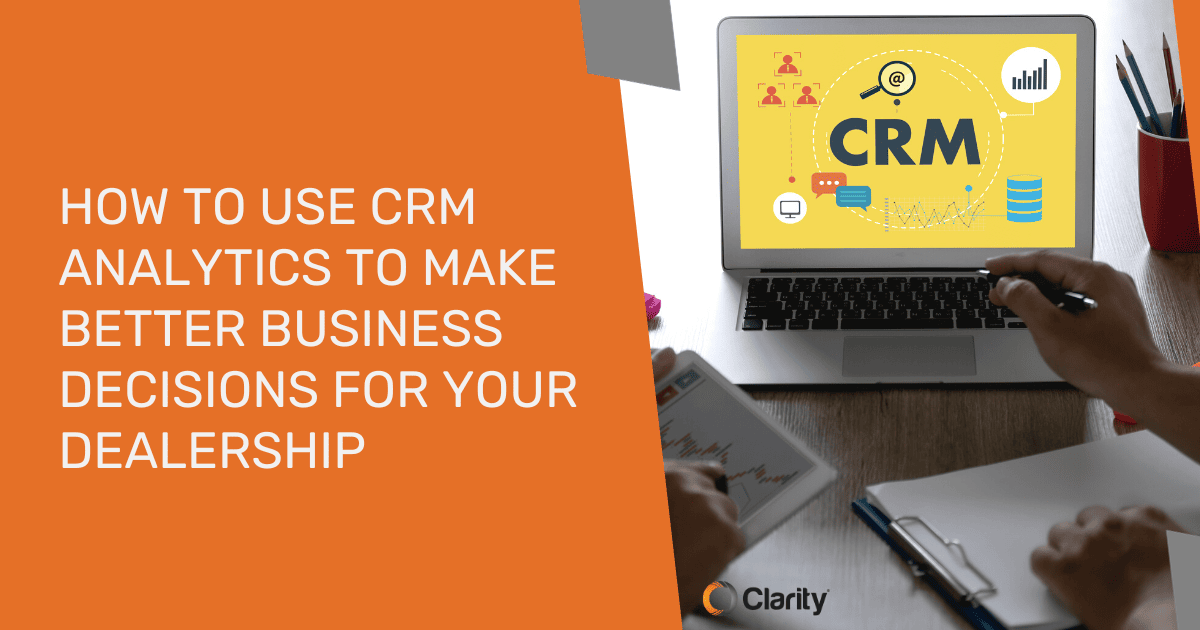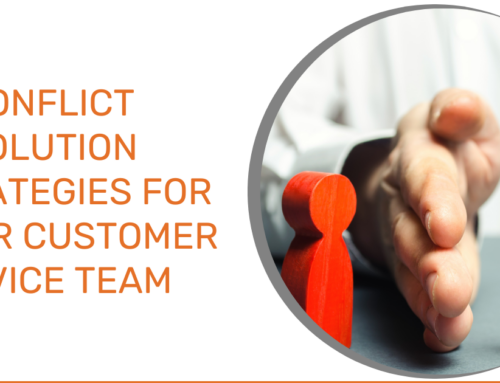Welcome back to our ongoing series on maximizing the use of your CRM system in your auto dealership. We have explored various aspects in previous articles, such as lead management, customer service, and marketing. Today, we focus on an increasingly vital topic: using CRM analytics to make better business decisions.
Every choice you make can impact your bottom line, so making data-driven decisions is necessary. That’s where the robust analytics capabilities of your CRM system come into play. CRMs excel at compiling data and giving insights into your dealership’s operations. This article will explore seven ways to leverage your CRM analytics to make informed decisions that will push your dealership to greater heights. Let’s get started.
7 Ways CRM Analytics Can Improve Business Decisions

CRM metrics are more than just numbers on a screen. They are the pulse of your dealership, capturing where you are thriving and where you can improve. The CRM analytics we discuss below can offer you the clarity and direction needed to make better business decisions.
1. Demographic Analysis for Campaign Targeting
Knowing who is in your database is crucial for any marketing strategy. Dealership owners can use the demographic data stored in their CRM to understand their customers and leads better. This includes data points such as age, gender, location, and even car preferences and purchase history. When you have these CRM metrics, you can:
- Identify Most-Attracted Segments: Understand which demographic groups are most often becoming leads. This can help you tailor existing marketing strategies to better appeal to them.
- Determine High-Conversion Segments: Data can show which demographic segments are more likely to convert from a lead to a customer. Use this to fine-tune your sales processes.
- Target Underrepresented Segments: Spotting underrepresented groups in your database can highlight new opportunities for targeted campaigns.
Demographic data provides a layered understanding of your customers and leads. Knowing your demographics well is like having a cheat sheet for improving almost every aspect of your dealership, from marketing to sales to customer retention.
2. Net Promoter Score (NPS)

The Net Promoter Score (NPS) is a metric that gauges customer satisfaction and loyalty by asking one simple question: “How likely are you to recommend our product/service to a friend or colleague?” Scores range from 0 to 10, offering valuable insights into your customer relationships.
By linking your feedback system to your CRM, you can see individual NPS scores and aggregate them to see how satisfied customers are with your dealership as a whole. In addition, you can segment based on various parameters like purchase history, types of interactions, or demographics to see how NPS varies by segment.
Gathering this data allows you to pinpoint what’s working well and what isn’t. For instance, you might find that customers with a purchase history of premium models are more likely to give higher NPS scores. Conversely, you may identify that lower scores are often associated with specific customer complaints or service delays. With this data, you can make targeted changes to improve the customer experience.
Over time, you can also track how your interventions affect your overall NPS, giving you a quantitative metric for evaluating the effectiveness of changes.
3. Sales and Revenue Metrics
When it comes to understanding the financial health of your dealership, CRM metrics on sales and revenue provide valuable data points. Your CRM can track:
- Total Sales Volume: Helps identify growth or decline trends in the number of units sold.
- Average Transaction Value: Useful for spotting whether upsells or cross-sells are effective.
- Gross Profit Margin: Indicates the profitability of your business model.
- Gross Profit per Vehicle: Provides insights into the profitability of each unit sold, offering clues for inventory planning.

For instance, a high gross profit margin suggests you have room for more promotions. Discounts could increase sales volume, making up for the lower profit per unit. Conversely, a declining average transaction value could indicate that your sales team might need additional training on upselling techniques. These CRM metrics are actionable data points that can guide your business decisions.
4. Timing and Flow in the Sales Process
Understanding the flow of your sales process can help improve efficiency and customer satisfaction. Your CRM can track various time-related metrics to give you a complete picture.
- Lead Response Time: How quickly your sales team reaches out to new leads.
- Days to Close: The average time it takes to convert a lead into a customer.
- Time Between Purchases: Useful for understanding repeat business and loyalty.
You can pinpoint bottlenecks or inefficiencies in your sales process by monitoring these CRM metrics. For example, if the ‘days to close’ metric is too long, it might mean that leads are not nurtured adequately or promptly. Addressing these issues can make your sales cycle more streamlined and effective.
5. From Car Buyer to Service Customer

We often focus on the car buying experience but overlook the potential for continued business in the service department. Your CRM can track how many car buyers convert into service customers for maintenance and repairs. A low conversion rate could indicate missed opportunities to market your service department at the point of sale or even after.
This metric can help you identify gaps in your customer journey and create targeted marketing initiatives to promote your service offerings to new car buyers. It’s a potential revenue stream that can boost profitability while deepening customer relationships.
6. Promotion Response
Your CRM metrics can help you assess the performance of your marketing campaigns. Examining promotional response rates and email open/click rates gives you a detailed view of how well your promotions are doing. This can help you pinpoint areas requiring tweaking, whether changes to the content or the target audience.
With CRM data, you can:
- Learn which segments are responding best to your campaigns so you can allocate more resources to reach similar groups.
- Understand how leads respond to emails through open and click rates and then make changes to boost them.
- Track how quickly people respond to a campaign to identify those that are highly effective and those that need to be tweaked or retired.
7. Cost per Lead

Understanding Cost Per Lead (CPL) can help you evaluate the ROI of various marketing channels. Your CRM allows you to dissect this metric in multiple ways.
- Channel-Specific CPL: Knowing the CPL for each marketing channel helps you allocate your budget more effectively.
- Trends Over Time: Is the CPL rising or falling? A rising CPL could trigger a reassessment of your marketing strategy.
- Quality of Leads: Not all leads are equal. Your CRM can help correlate CPL with lead quality by tracking conversion rates for leads from different sources.
With a granular view of your CPL, you gain actionable insights. For example, if the CPL from social media platforms is rising but the lead quality is poor, you might consider reallocating that portion of your budget to a more fruitful channel. It’s not just about how much it costs to acquire a lead; it’s about ensuring that the cost aligns with the value the lead brings to your business.
Using CRM Analytics to Drive Growth
There you have it—seven ways to use your CRM’s analytics to make better business decisions. Each can help you understand and improve your dealership’s operations and strategy. Armed with these insights, you’re well on your way to running a more efficient, profitable, and customer-friendly auto dealership.
Our series on using a CRM to boost your dealership is almost over! In our final article, next time, we’ll cover some general CRM tips and tricks you will find helpful. Don’t miss it!



